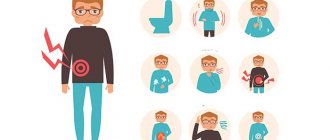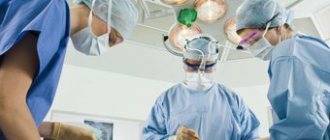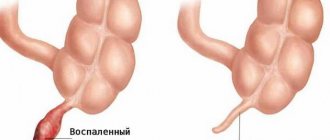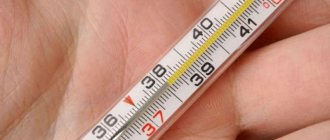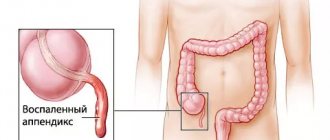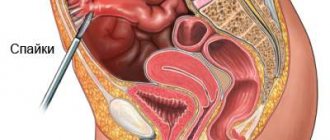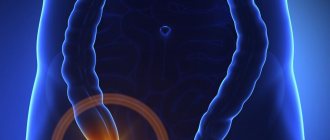What is forbidden to do BEFORE surgery?
If you suspect appendicitis, you should urgently call an ambulance, especially if the patient is a child under 15 years of age.
Important! The sooner the operation is performed, the faster and easier the person will recover. In children, appendicitis develops faster (within 36 hours from the onset of inflammation, while in adults - within 48 hours), so you need to see a doctor urgently.
The patient must lie down, and he must not be allowed to eat or drink at this time; in no case should he take painkillers (even noshpa), laxatives or antibiotics on his own; he must not do an enema or warm up the stomach; and it is also forbidden to try to independently diagnose by putting strong pressure on the abdomen (if you do not follow these tips, there is a risk of accelerating the rupture of appendicitis, which is the beginning of peritonitis, from which a person can die).
The first day after the intervention
Surgery to remove the appendix is considered a non-hazardous procedure.
The rehabilitation period after appendectomy is 2 months. Young patients who led a healthy and active lifestyle before the intervention recover faster. It is more difficult for children and overweight people to recover.
It is important to understand that removal of the appendix is a wide-ranging open intervention and the doctor’s recommendations on behavior in the postoperative period should be taken with full attention!
After the operating room, the patient goes to the surgical ward, and not to the intensive care unit. Intensive care unit after appendectomy is not indicated.
The intervention is carried out under general anesthesia, so in the first hours after the operation it is important to properly remove the patient from this state, prevent disturbances in brain function and prevent vomit from entering the trachea and lungs. What should you do on the first day:
- Lie for the first 8 hours after the intervention and only on your left side. This promotes free passage of vomit and less additional trauma to the patient.
- If the patient's condition is satisfactory, then after 8 hours he is allowed and even prescribed to sit down, make careful movements, stand with the help of a nurse or on his own.
- During this period, the administration of injectable painkillers and antibiotics is prescribed to stop a possible inflammatory process.
The duration of stay in the surgical department is no more than 10 days. If the patient is confidently recovering, then, as a rule, he is transferred to outpatient treatment on the 4th day after the intervention. What medical staff must do:
- monitoring of temperature, blood pressure, condition of sutures;
- monitor the quality and quantity of urination and bowel movements;
- dressings;
- prevention of possible complications.
When can you get up and walk after appendectomy?
It is better to start getting up and walking slowly after surgery to remove simple appendicitis as early as possible (after 5 - 6 hours). If you are diagnosed with gangrenous, gangrenous-ulcerative, purulent appendicitis with or without peritonitis, it is better not to get out of bed for at least a day (at first it is better to sleep on your back, but not on your side).
The first time it is better not to get up abruptly, but to sit on the bed for a while with your legs down, and then get up. In the beginning, you need to walk with someone's help. You will feel that walking becomes easier and easier every day.
When and how can you take a shower or bath after appendicitis?
Recovery of the body depends on many factors, including bathing. Patients may become irritated by a temporary ban on taking a shower or bath. Since there were no such problems before and it is not easy to get used to restrictions of this kind.
As mentioned above, surgical wounds must remain dry for a certain period of time. But, after 15-20 days, you can gradually increase comfort while maintaining hygiene.
You should start with a light shower. At the same time, you should not rub too hard so as not to disturb the structure of the scar tissue. Two or three weeks after surgery, you are allowed to take a bath. As for the water temperature, why use too hot water when you can wash with warm water without complications.
When can you wash after appendicitis?
After removal of appendicitis, before removing the stitches, you can wash only in parts, so that water and hygiene products do not wet the wound. Once the stitches are removed, you are allowed to shower. You will be able to take a bath only after two weeks.
Swimming in the sea or taking a steam bath is also better only after the body has fully recovered (high temperature can increase swelling).
Maintaining hygiene after surgery, features of the process
Many surgical wounds, which is important to know, should not be urinated with water for the first time - the doctor or surgeon who is responsible for the treatment knows this. Also, if the surgeon has allowed bathing, then after such procedures it is worth carefully treating the wound. But it is important to know this in advance in order to eliminate mistakes.
After discharge, the first thing you should pay attention to is caring for the suture. It is important to do it right:
- mechanical treatment of the seam using antiseptic agents.
- diet;
- elimination of heaviness;
- correct wearing of the bandage.
Those who have undergone surgery are wondering whether it is possible to take a shower or bath after appendectomy during the rehabilitation period. At first, doctors do not recommend washing the seam. It is better to treat it with antiseptic agents.
After discharge, you can wash the suture from above using a light solution of potassium permanganate. This is done about 3 times throughout the day. In addition to potassium permanganate, you can use the following drugs that do not irritate the wound and do not dry it out much.
- 3% hydrogen peroxide solution.
- Fukortsin.
- Iodine solution.
- Castellani liquid.
- Using brilliant green gives good results.
- Furacilin solution.
How long and how limited is physical activity after appendicitis?
After the appendicitis has been removed, you should not be exposed to heavy physical activity for at least three months, while normal physical activity (housework or walking) is allowed after half a month, otherwise you may develop an inguinal hernia and will need to remove it again. operation.
How much weight can you lift? After 2 weeks it is allowed to raise the weight up to 3 g, in the second month up to 5 g, and over the next four months the weight up to 10 kg.
Doctors give sick leave for a maximum of a month, so when going to work, you need to take care not to lift heavy objects and work as hard as you can. It is better for your child not to carry a heavy briefcase to school (which means you need to keep track of how many kilograms it weighs). And adults should not pick up children.
How to wash properly after appendicitis surgery
If the doctor, after a while, after the operation, allowed him to take water procedures. It is important to maintain safety and accuracy.
Procedure
Before swimming, it is important to carefully remove the bandage and all patches. Since the patient initially needs help and increased safety when moving around the house. In such cases, they turn to relatives or friends for help, so that they can help get into the shower and also get out of it, especially if the body is weakened.
In the shower, you need to stand under a warm stream of water or simply wet the wound, watering it. It is important to ensure that the incision site does not get wet.
It is not recommended to use direct water jets on the wound. You need to stand on the opposite side - with your back to the source of water, this is more comfortable and there will be no sensations of pain.
Care must be taken to avoid damaging the healing wound.
- It is important to keep the wound dry after taking a bath or shower.
- Use only clean water (excluding the ingress of microorganisms, including staphylococcus).
- It is recommended to use a washcloth or soft cloth when bathing.
- It is important to regularly appear for examination by a specialist who monitors the rehabilitation period.
- If the surgeon allows you to use soap, it is not recommended to apply it directly to the incision site.
After bathing, it is important to treat the wound, and after it you can wrap yourself in a warm towel or put on a soft robe.
What can and cannot be eaten if you have appendicitis?
During treatment after an appendectomy, you need to go on a diet for some time.
In the first days you can eat
only:
- low-fat broth,
- jelly made from natural fruits,
- weak tea without sugar.
From the second day you can enter:
- vegetable puree (potato, zucchini or pumpkin) without salt,
- boiled rice without salt,
- low-fat unsweetened yogurt,
- puree soup with herbs,
- boiled meat in the form of puree.
Starting from the second half of the week you can eat:
- porridge (oatmeal, buckwheat, rice) without butter and milk,
- fruit compotes and natural juices,
- kefir,
- low-fat cottage cheese without sugar,
- egg,
- boiled fish,
- chicken or rabbit meat.
The following fruits are allowed to be eaten:
- tangerines,
- oranges,
- peaches,
- dried fruits,
- bananas.
For sweets, only marshmallows are allowed.
Can't eat
the following products:
- bread,
- coffee,
- chocolate,
- milk,
- sweet cookies,
- condensed milk,
- ice cream,
- jam,
- candies,
- cakes,
- shrimps,
- chips,
- sushi,
- smoked and boiled sausages,
- sausages,
- shashlik,
- fried dishes,
- fried (meat, potatoes, eggs),
- pasta,
- dumplings,
- pizza,
- omelette,
- tomatoes,
- seeds,
- watermelon,
- persimmon,
- grape,
- corn,
- fresh apples,
- pomegranate,
- kiwi,
- raw vegetables, etc.
Why can't you eat these foods? They can be hard on the intestines, causing fermentation, increased gas (flatulence) or constipation. You need to eat this way until the doctor allows you to return to your usual diet, and this needs to be done gradually.
Interestingly, appendicitis does not appear due to the fact that a person chews a lot of seeds. There are many causes of this disease that are not related to them.
Shower after surgery
The recovery period after appendicitis surgery depends on many factors. Bathing plays an important role in this process.
Many patients are irritated by the inability to take a full shower or bath after an appendectomy. But the rules cannot be neglected, so the wound must not be wetted. After 15-20 days you can wash yourself after surgery, but this should be done gradually.
Initially, they limit themselves to a light shower. When bathing, do not rub the seam so as not to disturb the tissue structure.
A bath is taken only after 2-3 weeks. To avoid complications, use warm water instead of hot water.
Contraindications
There are certain rules for taking a shower that should not be broken:
- Use hygiene products of unknown brands that can lead to allergic reactions;
- Use soap or other care products that contain large amounts of acids and other harmful substances;
- Do not rub the excision site with a washcloth;
- Take a hot shower.
Performing hygiene procedures is permitted only after consultation and permission of the attending physician.
When to go to work
According to official medical standards, 2 weeks are allotted for the healing of a suture after appendicitis. Over the next 2 weeks, the body fully recovers. The total is 4 weeks, but these are averages. Sick leave for laparoscopy is issued for 5-10 days. After a complex abdominal operation, they are released from work for 15-30 days. If the postoperative period is aggravated, sick leave is extended for more than 30 days until complete recovery.
Recovery after removal of the inflamed appendage of the cecum takes 4-6 weeks. During this time, damaged skin and muscles grow together. To facilitate the post-operative interval and speed up healing, follow the doctor’s recommendations, take the necessary medications, and adhere to a diet.
We recommend: What complications can occur with acute appendicitis
